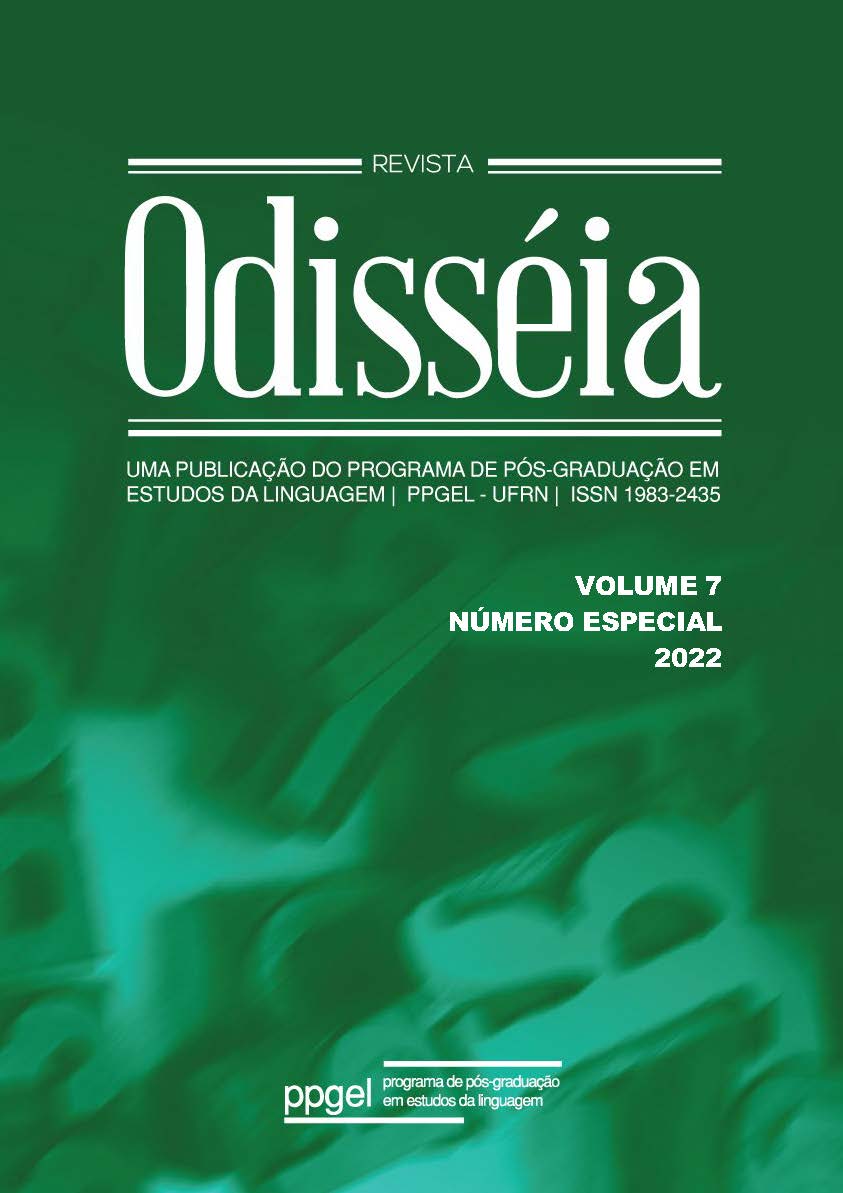The role of sociointeractional processes and conceptual projections in the semantic extension of deverbal nouns in -nte
DOI:
https://doi.org/10.21680/1983-2435.2022v7nEspecialID27548Keywords:
Deverbal nouns in –nte. Sociointeractional processes. Conceptual projections. Usage-Based Functional Linguistics. Construction Grammar.Abstract
In this article, we look at the use of deverbal nouns in –nte. We discuss the emergence and routinization of meanings of deverbal nouns in -nte through the performance of sociointeractional processes and metaphorical and metonymic conceptual projections. Our theoretical framework is that of Usage-Based Functional Linguistics (LFCU), in line with the perspective of Construction Grammar. The data are from samples of Portuguese written in the period between the 13th and 20th centuries, from three historical corpora. The analyzes show that nouns in –nte can carry meanings that are not foreseen by the semantics of the verbal base but are the result of the intersubjective negotiation of meanings by the speakers. Conceptual projections are also important semantic extension mechanisms because they allow, by mapping notions from the same cognitive domain or from different cognitive domains, to promote new meanings for names in –nte.
Downloads
Downloads
Published
How to Cite
Issue
Section
License
Thisa work has been licensed under Creative Commons - Atribuição - NãoComercial - CompartilhaIgual 3.0 Não Adaptada.


















